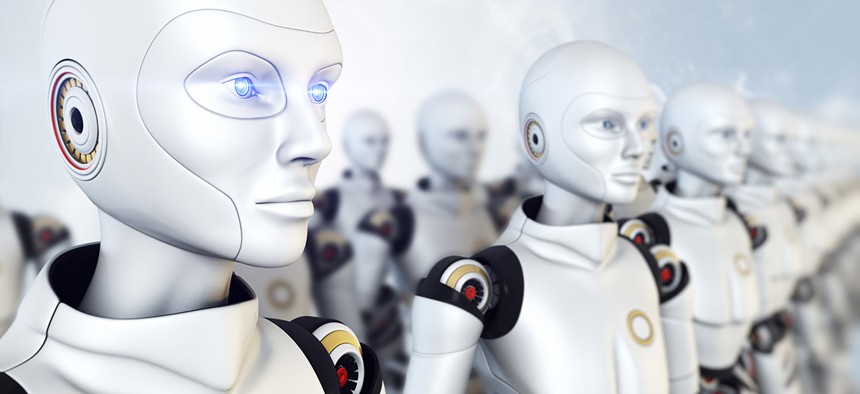Could We All Have Cyber Doppelgängers in the Future?

Tatiana Shepeleva/Shutterstock.com
The idea of a world with "mind clones" may not seem so crazy after all.
In the not too distant future -- perhaps sooner we’d expect -- humans could have digital doppelgängers who look like us, act like us and potentially, even have the same legal rights as us.
It may sound like science fiction, but it’s the vision Martine Rothblatt has of a world powered by big data.
Admittedly, Rothblatt’s ideas are a bit out there. She’s a transhumanist, a futurist who believes technology can free humans from their limitations. Rothblatt pointed to the fact that increasingly today the contents of our minds -- thoughts shared on social media platforms, video surveillance and purchases made on e-commerce sites -- are being poured into big data repositories. In the near future, all that data can be used to create cyber carbon copies of humans that can outlast physical bodies, she argues.
“It will be inevitable that there will be digital replicas of ourselves that sound like ourselves, think like ourselves, perhaps even feel like ourselves,” said Rothblatt, CEO of biotech company United Therapeutics, speaking Sept. 30 at The Atlantic's Washington Ideas forum. And when our bodies begin to fail, for example, because of dementia or Alzheimer’s, these “cyber-conscious continuations of ourselves will claim they are ourselves and they will have a right to continue our activity as citizens.”
In that scenario, Rothblatt says, issues like ethics and legality will come into play. But more important, what will need exploration is the philosophical question about whether a cyber human is just “a fancy digital puppet” or possesses values and has internal feelings about its world, Rothblatt said.
Moreover, should cyber-conscious beings be granted the legal rights of their predecessors?
Rothblatt has taken on this topic more in depth in her latest book, “Virtually Human: The Promise and Peril of Digital Immortality," which explores the potential rise of digital doppelgängers.
A world with so-called mind clones may seem light years away. But consider some current advancements in intelligent technology that a few years ago seemed mere fantasy. Rothblatt, a transgender woman, has an artificial intelligence modeled after her wife, Bina Aspen Rothblatt, dubbed Bina48, who’s mentioned in a March 2015 TED Talk, "My Daughter, My Wife, Our Robot and Our Quest for Immortality.”
But on a bigger, commercial scale, today’s software companies are racing to develop a product that will “out-Siri Siri,” by creating and tweaking "mindware" to closer approximate our human personalities, Rothblatt said.
“The hottest area of software development is what I call mindware: software that replicates more and more aspects of the human mind and the human personality,” Rothblatt said.
And as this mindware gets fine-tuned to reflect each individual’s unique personality, a world with digital doppelgängers may not seem so crazy after all.






